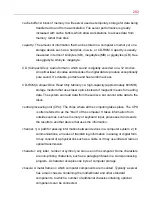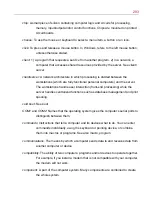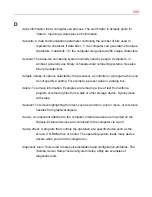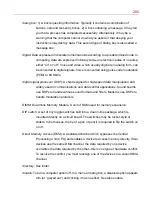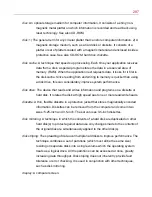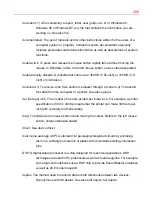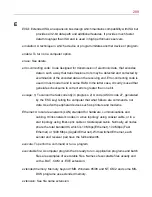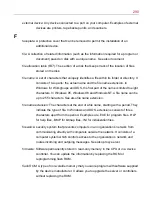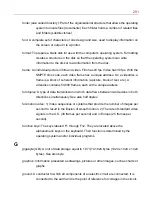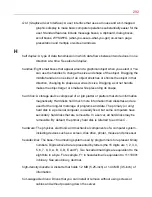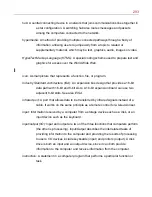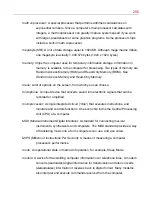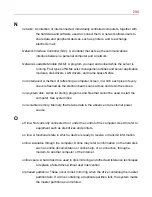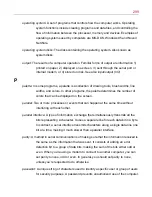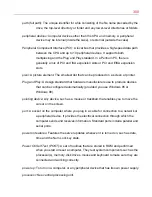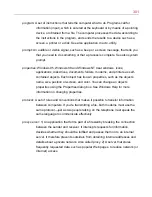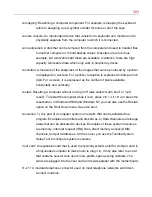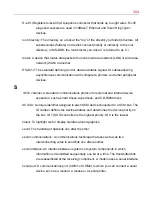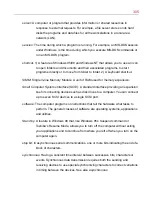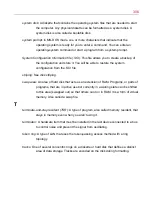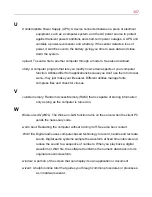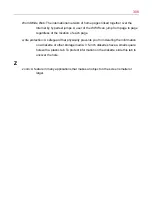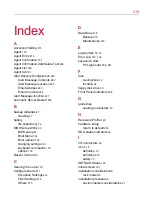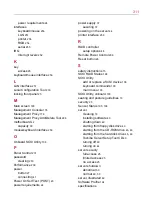
296
math coprocessor: A special processor that performs arithmetic calculations on
exponential numbers. Since a computer’s main processor calculates with
integers, a math coprocessor can greatly improve system speed if you work
with large spreadsheets or some graphics programs. Some processor chips
include a built-in math coprocessor.
megabyte (MB): A unit of data storage equal to 1024 KB. Although mega means million,
one megabyte is actually 1,048,576 bytes (1024 x 1024 bytes).
memory: Chips the computer uses for temporary information storage. Information in
memory is available to the computer for processing. Two types of memory are
Random Access Memory (RAM) and Read-Only Memory (ROM). See
Random Access Memory and Read-Only Memory.
menu: A list of options on the screen, from which you can choose.
microphone: An input device that converts sound into electronic signals that can be
recorded or amplified.
microprocessor: A single integrated circuit (“chip”) that executes instructions, and
monitors and controls functions. One such chip forms the Central Processing
Unit (CPU) of a computer.
MIDI (Musical Instrument Digital Interface): A standard for connecting musical
instruments, synthesizers and computers. The MIDI standard provides a way
of translating music into a form computers can use, and vice versa.
MIPS (Millions of Instructions Per Second): A means of measuring a computer
processor’s performance.
mode: An operational state or method of operation, for example, Sleep Mode.
modem: A device for transmitting computer information over telephone lines. A modem
converts (modulates) digital information for transmission and also converts
(demodulates) information it receives back to digital format. Many modems
also interpret and execute commands received from the computer.
Summary of Contents for 3200
Page 1: ... ...
Page 309: ...309 ...

